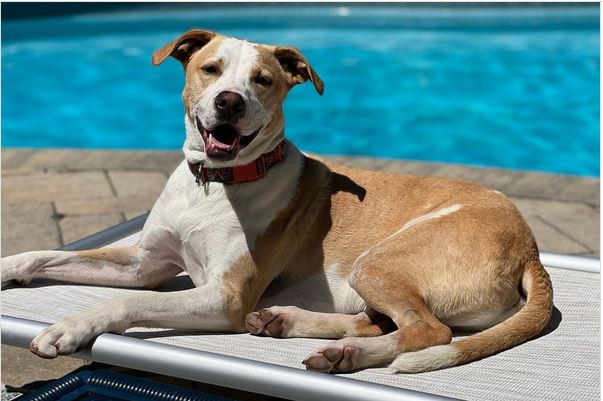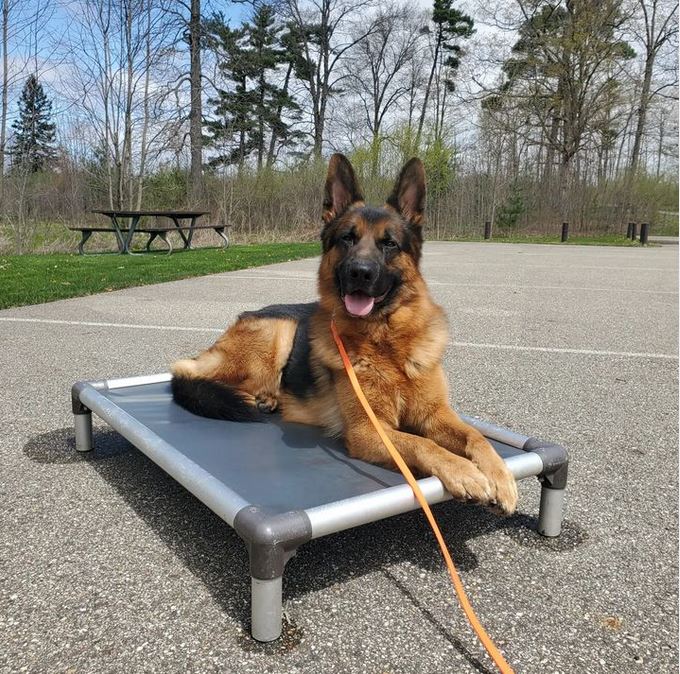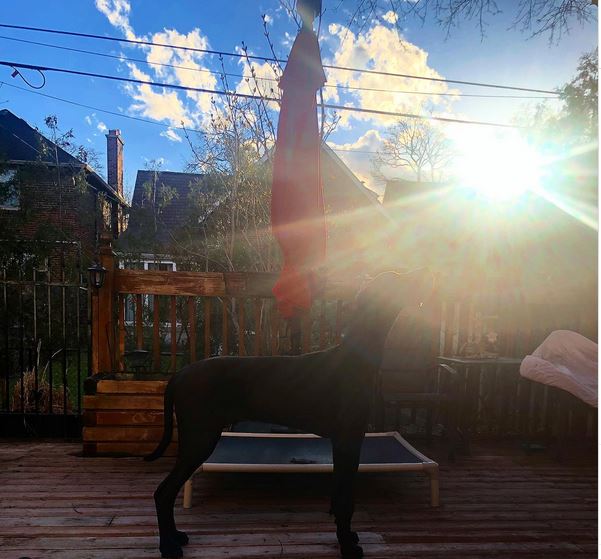Summer Safety for Pets
Posted by Caroline Aro on 06/13/2023

Whether your summers are as hot and humid as they are here in Maryland, it’s good to stay informed on how to ensure your pets’ safety during these warmer months! Here are 10 basic summer safety tips:
1. Spring/early summer checkup
It’s a good idea to regularly bring your pet to the vet, make sure everything is good before the summer heat hits. Be sure your pet’s vaccinations are up-to-date and be sure to have your vet’s phone number and information handy in case of emergency or accidents.
2. Provide shade/water
Be sure to give your pet access to fresh water at all times, and a good shady spot to cool off and get out of direct sunlight. Don’t leave them unattended and be sure at the least, they have water and shade available.
3. Don't leave your pet unsupervised
Whether it be in direct sunlight, a parked car or poolside, do not leave your pet unattended!
It’s been proven time and again that parked cars can be incredibly dangerous – when it’s 80 degrees outside, the inside of the car can heat up to 102 within 10 minutes (even with the windows cracked) and 120 degrees in a half hour. Even if the windows are open slightly, this will not make a significant difference – your pet is in danger of heat stroke and possible death if left in a hot car.

Photo from @bozemansirstaffy on Instagram
Whether or not your pet is a good swimmer, don’t leave them unattended by the pool, on a boat, at the beach… Introduce them gradually to water, provide water flotation life vests when on a boat and give them a good rinse after swimming. Don’t let them drink the water they’re swimming in – pool water is full of chemicals such as chlorine
4. Know the symptoms of overheating/heat stroke
Keep an eye out for signs and symptoms of overheating in your pets, and heat stroke. If you notice excessive panting, difficulty breathing, an increased heart and/or respiratory rate, drooling, weakness or even collapse, bring them into the shade or an air-conditioned area. Other signs include vomiting, deep red/purple tongue, seizures, or passing out. Apply ice packs or cold towels to their head, neck and chest. You can also run cool (not cold) water over them. Let them drink water in small amounts, or lick ice cubes.
If you notice any of these symptoms or are concerned at all, call your vet or take them into your clinic right away.
Flat-faced pets (such as pugs, Persian cats etc.) can’t pant or breathe as effectively as other breeds. Be sure to keep these pets, senior, overweight and those with heart/lung conditions indoors and in the air conditioning as much as possible.
5. Limit exercise
Even if your pet is young and in great shape, try to limit exercise and activity on extremely hot days. Try to avoid any activity in the middle of the day when the sun’s heat is the most intense – early morning or evening hours are typically cooler. Adjust the intensity and amount of exercise depending on the temperature.
6. Asphalt

Photo of Jax, from @mittenstatedogtraining on Instagram
If the pavement is too hot for you to stand, it is definitely too hot for your pet’s paws! Because it is dark in color and has a dense structure, asphalt absorbs a lot of heat. Asphalt can be 40 – 60+ degrees hotter than the surrounding air temperature.
Follow the 7-Second Rule: Place the back of your hand against the asphalt for 7 seconds. If it’s too hot for you, it’s too hot for your pet! Your pet’s paws can be damaged in just 60 seconds from hot pavement so take care to avoid painful burns or blisters.
7. Summer festivities

Photo of Arthur from @georgiathedane on Instagram
While there are plenty of summer fun festivities, keep your pets in mind if they’ll be in attendance! Many foods that we enjoy at cookouts and barbecues can actually be toxic or poisonous to pets – it’s best to avoid giving pets people food anyways but BBQ foods can be poisonous to pets. Always keep alcoholic beverages away from pets.
Never use fireworks around pets. Exposure to lit fireworks can possibly cause trauma, severe burns – even unused fireworks can be dangerous and can contain hazardous materials. Many pets also get scared by the sudden loud noises and so pets often are lost during Fourth of July festivities. They get disoriented, scared and can escape, which is why it’s especially important to ensure your pet has the proper ID!
8. Proper ID
All pets should have proper ID tags with contact information, and a microchip that links to up-to-date information.
9. Prepare for power outages
Summer storms and heat waves can lead to power outages – keep a list of local vet offices, boarding facilities etc. that may be able to help you and your pets during an emergency.
10. Summer vacation

We all look forward to a relaxing summer beach trip. Be sure to plan accordingly if you plan on bringing your pets! Remember, pets can get sunburned too so provide lots of shade and fresh water. When swimming, dogs can be easy targets for jellyfish, sea lice or other critters found at the beach. Don’t allow your pet to drink too much seawater as this could cause them to become ill. Keep an eye on your pets and be careful when taking then on trips with you.
Keep these tips in mind to enjoy a fun, safe summer with your pets! If you are ever concerned about your pet’s health, please reach out directly to your veterinarian.
